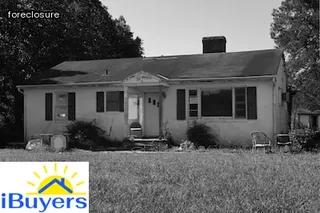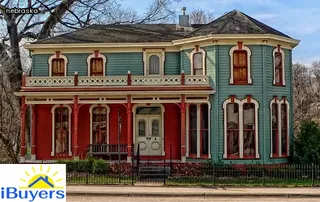In Nebraska, foreclosure is a legal process that allows lenders to repossess a borrower’s property if they are unable to repay their mortgage. This process is overseen by the courts and generally begins with the lender filing a Notice of Default.
At this stage, homeowners will have time to either pay off their debt or negotiate an alternative payment plan. If no agreement is reached, the lender can move forward with a foreclosure auction where the property is sold to the highest bidder.
The homeowner will then be required to vacate the premises and may even be held responsible for any remaining balance on their loan after the sale of the property. Understanding how foreclosure works in Nebraska can help homeowners prepare for potential financial difficulty and make decisions that can help protect their financial security.

In Nebraska, homeowners facing foreclosure are afforded certain rights and it is important to understand them in order to protect oneself and one’s property. For example, the borrower has the right to receive notice before a foreclosure sale can occur if the loan is secured by a mortgage or deed of trust.
The lender must provide notice of the default and an opportunity for the homeowner to cure it. Additionally, homeowners have the right to request mediation with the lender in order to reach a resolution outside of foreclosure proceedings.
Furthermore, if foreclosure does take place, borrowers have certain protections that limit how much they are responsible for paying back after their home is sold. It is also important for homeowners to be aware that certain state laws apply when it comes to foreclosures in Nebraska and that adhering to these laws may help protect them from losing their home or being held liable for unjustified costs associated with foreclosure proceedings.
Understanding pre-foreclosure steps and homeowner rights in Nebraska can provide important information on how best to navigate this difficult situation.
Navigating foreclosure in Nebraska can be complicated, especially for homeowners who are unfamiliar with the process and the applicable laws. It is important to understand federal mortgage servicing laws and Nebraska foreclosure protections, as these will help you determine the steps you need to take throughout the process.
The federal Real Estate Settlement Procedures Act (RESPA) requires loan servicers to provide borrowers with information about their loans and any changes made, including any transfer of servicing rights and contact information for the new servicer. Additionally, it prohibits loan servicers from engaging in unfair practices such as collecting late fees that have already been waived or charging unearned fees.
In addition to RESPA, Nebraska has its own foreclosure protections which require lenders to send a Notice of Default at least 15 days before filing a foreclosure lawsuit. Lenders must also make an effort to contact borrowers by phone or mail prior to filing a lawsuit to discuss potential ways of avoiding foreclosure.
If a borrower decides to enter into a repayment plan with their lender, they should be aware that Nebraska law limits late fees on repayment plans so long as payments are made on time. Lastly, homebuyers should remember that all foreclosures must be approved by an actual court order in Nebraska before they can proceed with the sale of a property.

In Nebraska, the lender must provide a breach letter to the homeowner before initiating foreclosure proceedings. This breach letter must include specific information in order for it to be valid.
It must be written in plain language and must include the date of the letter, a statement that the loan is in default and an explanation of why, a demand for payment within 30 days and notification that if payment is not received within 30 days, then foreclosure proceedings will begin. The letter should also include a description of any options available to the homeowner such as mortgage modification or repayment plans.
Furthermore, it should state that homeowners have certain rights under Nebraska law which includes a right to reinstate their loan after the foreclosure is initiated or a right to redeem their property by paying off all amounts due on the loan. Finally, it should also inform them about any free counseling services available through HUD-approved housing counseling agencies.
In Nebraska, the foreclosure process begins with an initial default on a mortgage payment. Once the homeowner has failed to make timely payments for a period of 90 days, the lender can initiate legal action to start the foreclosure.
This can be done by delivering or mailing a Notice of Default and Right to Cure letter to the homeowner. The letter will provide them with 30 days to make up any past due payments and reinstate their loan in good standing.
If this option is not exercised, the lender can file a Complaint with the court which starts a lawsuit against the borrower for repayment of their debt. The court will then issue an Order for Foreclosure Sale that gives the borrower 32 days to pay their mortgage back in full before it goes into foreclosure proceedings.
On average, foreclosures in Nebraska take around three months from start to finish, but this timeline can vary depending on other factors such as whether or not there are multiple mortgages involved or if bankruptcy is filed during the process.

In Nebraska, there are two types of foreclosure available: judicial and non-judicial. Judicial foreclosures take place in the court system and require a judge’s approval.
This type of foreclosure is often used when the borrower has legal issues or disputes with their lender. Non-judicial foreclosures do not need to go through the court system and generally involve a third party service to help facilitate the transaction.
These types of foreclosures can be more cost effective for lenders, as they don’t have to pay court fees or appear in court. In both cases, once a foreclosure occurs, the property is sold at an auction and all proceeds go toward paying off the remaining debt owed by the homeowner.
It is important that homeowners understand which type of foreclosure applies to them so they can make informed decisions about their financial future.
Navigating the foreclosure process in Nebraska can be a challenging journey for homeowners. It is important to understand the different steps of the process, so you can take action to protect your rights and interests.
In order to start off on the right foot, it is essential to research and understand the laws and regulations that govern foreclosures in Nebraska. The most common steps of the foreclosure process in Nebraska consist of pre-foreclosure notices, public auctions, court orders, reinstatement rights and deficiency judgments.
Pre-foreclosure notices will typically be sent out by lenders as a warning before they initiate a foreclosure. Public auctions are then held where lenders will sell properties to satisfy unpaid mortgages.
After the auction, court orders may follow if there are any unresolved disputes between homeowners and their lenders. As for reinstatement rights, these refer to the ability of homeowners to catch up on past due payments in order to avoid foreclosure proceedings.
Finally, deficiency judgments are potential legal actions that lenders can take against borrowers if they fail to pay off their remaining debt after foreclosure has been completed. With this knowledge in hand, homeowners should be better equipped to handle any potential issues that may arise during the foreclosure process in Nebraska.

If you're a homeowner in Nebraska and facing foreclosure, there are steps you can take to try to stop it. The first step is to contact your lender or loan servicer as soon as possible to discuss repayment options or other alternatives.
You may be able to negotiate a new repayment plan that would bring your mortgage current, or you could apply for a loan modification to reduce the monthly payment amount. A forbearance agreement might also be worked out between you and the lender which would temporarily suspend or reduce your payments while allowing you to keep your home.
If these options don't work, then filing for bankruptcy may be an option that could help delay the foreclosure process. It's important to understand that filing for bankruptcy will not erase any debt owed on the home, but could give you more time before the foreclosure happens.
Lastly, speaking with a lawyer knowledgeable in Nebraska foreclosure laws can help guide you through each of the options available and provide advice on the best course of action for your situation.
In Nebraska, the state law of deficiency judgment allows the lender to sue a homeowner for the difference between what is owed on their mortgage and what is received when their home is foreclosed. Lenders can pursue this deficiency judgment anytime within five years of a foreclosure sale.
The amount of time available to file a judgement varies depending on whether it's a judicial or non-judicial foreclosure. If it’s a judicial foreclosure, the lender has up to three years following the foreclosure sale to seek a deficiency judgement.
In contrast, if it’s a non-judicial foreclosure, the lender has up to five years post-sale to seek reimbursement. The court will determine if the lender will receive full or partial payment and in some cases, no payment at all.
Homeowners should be aware that any unpaid balance for a deficiency judgment doesn't expire and continues as an outstanding debt until it's paid in full or discharged by bankruptcy.

In Nebraska, there are several resources available to help homeowners who are facing foreclosure. The state government and non-profit organizations can provide financial assistance and guidance through the process.
Borrowers should contact their lender as soon as they realize they are unable to make their mortgage payments to explore potential options. Depending on the lender, some may be willing to work with the borrower to create a repayment plan or modify their loan terms, potentially reducing monthly payments in order for them to keep their home.
Additionally, there are several government programs available such as the Home Affordable Modification Program (HAMP) that can help borrowers restructure their loan payback schedule to more manageable terms. Finally, non-profit counseling agencies offer qualified homeowners free advice and assistance related to foreclosure prevention and other housing issues.
These services include budgeting tips, credit counseling and assistance in negotiating with lenders.
Missing a mortgage payment in Nebraska can have serious consequences for homeowners. Foreclosure is one of the most severe outcomes of not meeting a monthly mortgage payment, and it can significantly impact the financial stability of Nebraskan homeowners.
When a homeowner misses a mortgage payment, their lender will typically send them a notice informing them that their loan is in default. This notice will include details about any late fees that may be incurred and how long the homeowner has to bring their account current before foreclosure proceedings begin.
In addition to fees and penalties, homeowners may also face higher interest rates if they fail to make payments on time. Furthermore, being in foreclosure can lower the homeowner’s credit score, making it difficult for them to obtain financing for future purchases or to refinance existing loans.
It is important for Nebraskan homeowners to understand the potential impacts of missing a mortgage payment so they can take proactive steps to avoid foreclosure and other financial difficulties.

When a homeowner in Nebraska is unable to keep up with their mortgage payments, they may consider letting their house go into foreclosure. While this can be an intimidating decision, there are some benefits to the process that should be taken into consideration.
Foreclosure allows the homeowner to remove all responsibility for the debt and any remaining balance that remains after the sale of their home. Additionally, it can provide an opportunity for homeowners to start fresh and rebuild their credit score.
Although it is important to note that foreclosure will remain on a person’s credit report for seven years, it does not necessarily mean they will not be able to qualify for future mortgages or loans during this period of time. Furthermore, when facing economic hardship due to job loss or other financial issues, filing for foreclosure is often one of the best options available as it helps prevent further debt from accumulating.
When a Nebraska homeowner is facing foreclosure, it is important to understand the potential tax implications that may result. Under federal law, mortgage debt that was forgiven due to a foreclosure, short sale or loan modification may be reported as taxable income by the lender.
However, homeowners are able to exclude this income from taxes if they qualify for the Mortgage Forgiveness Debt Relief Act or other provisions. Homeowners also need to be aware of any state laws that could potentially affect their tax situation.
In Nebraska, foreclosures do not require approval from the court and can take place without notice. As such, homeowners should take all steps necessary to ensure they are aware of how their taxes could be impacted by a foreclosure in order to avoid any possible financial burdens down the road.

In Nebraska, homeowners may have certain defenses against foreclosure that they can use to avoid losing their home. It is important to remember that a bank's right to foreclose on a home is not absolute and homeowners may be able to challenge it in certain circumstances.
For example, if the bank has not followed the correct procedure for foreclosing on the property or if the foreclosure was based on inaccurate information, then a homeowner may be able to challenge it. Additionally, if the homeowner has been subject to predatory lending practices or has experienced discrimination in any form, these may also be potential defenses against foreclosure.
Homeowners should make sure that they are aware of their rights and understand any potential defenses that they may have in order to protect themselves from foreclosure in Nebraska.
In Nebraska, the foreclosure process is a legal proceeding that takes time to complete. Generally speaking, it can take anywhere from three (3) months to twelve (12) months for a lender to foreclose on a house in Nebraska. The exact duration of the process largely depends on the type of loan and the specific circumstances involved.
In order to provide homeowners with an understanding of the timeline they are likely to face, it is important to consider each step of the foreclosure process. The first stage is known as pre-foreclosure, where lenders send out delinquency notices informing borrowers that they have fallen behind on their payments and must make them current in order to avoid foreclosure. After this period has expired, lenders may then file a Notice of Default with the court or county recorder's office which begins the formal judicial foreclosure process.
Once this notice has been filed, it typically takes at least three (3) months for lenders to proceed with a sale date if no payment arrangements have been made between borrower and lender. The final stage is when a public auction is held and a new homeowner is chosen who will assume ownership of the property. This usually takes place within six (6) months after the initial filing of a Notice of Default, although it could take longer if there are other factors at play such as bankruptcy proceedings or other extenuating circumstances.
All in all, it can take anywhere from three (3) months to twelve (12) months for lenders to foreclose on a house in Nebraska depending on various factors such as pre-foreclosure notices, filing of Notices of Default, and public auctions held by lenders. It is important for homeowners facing foreclosure in Nebraska to understand these timelines so they can make informed decisions regarding their financial future.

When it comes to foreclosure in Nebraska, homeowners need to understand why people let their house go into foreclosure. There are various reasons why a homeowner may be unable to afford their mortgage payment and ultimately have to surrender the property.
Financial hardship is often the leading cause of foreclosure, as unexpected job loss or medical expenses can quickly drain bank accounts. Additionally, divorces and other family issues can also lead to financial strain that makes it hard for a homeowner to keep up with loan payments.
In some cases, individuals simply cannot afford the rising costs associated with their home and must move out before they can no longer pay their mortgage. Regardless of the reason behind it, homeowners need to understand the potential consequences of letting a home go into foreclosure in order to make an informed decision about their own situation.
In Nebraska, foreclosure is a legal process in which a homeowner's mortgage lender attempts to recover the amount due on the loan by selling or taking ownership of the home. The lender initiates this process when a homeowner fails to make their mortgage payments as agreed upon in the loan contract.
To begin foreclosing on a property, a Notice of Default must be issued to the homeowner and filed with the county where the property is located. Once issued, the homeowner has 90 days to repay any past-due payments and bring their loan current before foreclosure proceedings can begin.
If these payments are not made within 90 days, then a Notice of Sale will be issued and published in local newspapers giving notice that the property will be sold at public auction. Finally, once an auction date is established any interested buyers can bid on the property with all proceeds going to satisfy any outstanding debt on the loan.
It is important for homeowners to understand their rights throughout this process as they may have options available that could prevent foreclosure altogether.
In Nebraska, the most common type of foreclosure is a judicial foreclosure. This type of foreclosure requires the lender to file a lawsuit in court against the homeowner, and the court will issue a judgment against the homeowner.
This typically involves a judge appointing an officer to sell the property at auction, with proceeds from the sale going to satisfy the debt owed by the homeowner. The other alternative is called a statutory foreclosure, which allows for more flexibility in terms of how quickly the process can move through and how much money can be recovered by lenders.
In either case, it's important for homeowners to understand their rights and obligations when facing foreclosure so that they can make informed decisions about what actions to take.